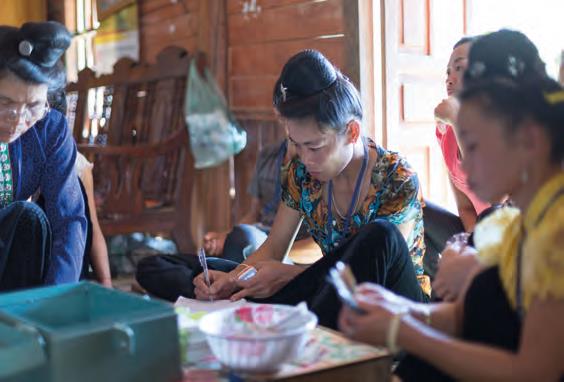
Description of the project: This project aims at empowering remote ethnic minority women to actively participate in local socio-economic development planning and decision-making. To achieve this objective, the project focuses on four components: 1) women’s voice in local development plan; 2) climate resilient livelihood; 3) strengthening women’s groups; 4) fighting gender-based violence. The project targets 4,500 women and 3,000 men of Thai, Tay, Dzao and Hmong people in remote northern mountain area. Nearly 90% of women were aware of climate change and its implication on their community and 43% of target women increased their income.
Climate Impact: The project has worked with indigenous communities to conduct climate vulnerability and capacity assessments, as well as research on climate resilient livelihood models. For the first time in their life local people reflected on climate change and its impact. A system of sustainable rice intensification (SRI) was applied. People saved 40% of their seedlings, reduced fertilizers use up to 40%, and 30% water. CO2 emissions from SRI practice can fall by 70%. This model helps farmers adapt better to drought and disaster by reducing water usage and shortening the cultivation period.
Gender Impact: The project established a social protection net for local women via a saving and loan association. This is a platform for women to talk, share, start saving and gain easy access to loans. It improves women’s confidence and solidarity. The SRI technical trainings were introduced for men and women. The latter could for the first time build their capacity on technical knowledge and agriculture, usually male dominated. As a result, women improved their income by $70 per acre of rice.
Scalability / replicability: CARE collaborates with Women’s Union – a national organization present in every village of Vietnam. This ensures for replicability across the country. Only minimal investment is needed for SRI. CARE provides technical assistance to partners. Women’s Union has already replicated this model in other sites: a Dzao village has also replicated SRI model without any support